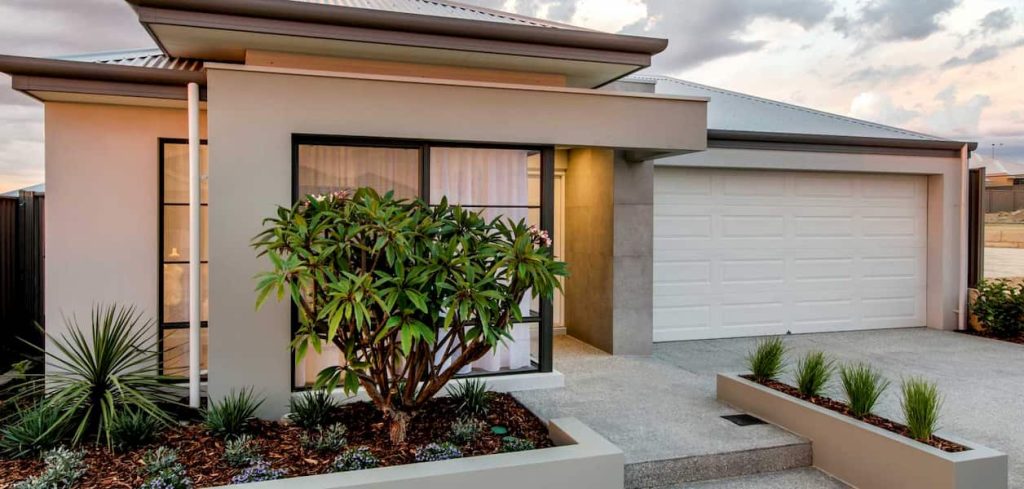Weather can be unpredictable, ranging from scorching heat to freezing cold as the seasons change. These extreme conditions can take a toll on the performance and durability of residential garage doors in Boise. For homeowners, it’s crucial to understand how different weather patterns can impact your garage door. This guide delves into common weather-related challenges and provides practical tips to help you protect and maintain your garage door year-round.
Effects of Weather on Garage Doors
Extreme Temperatures
Impact: Garage doors are exposed to varying temperatures throughout the year, which can take a toll on their functionality. In the summer, extreme heat can cause metal components to expand and warp, potentially leading to operational problems. In contrast, winter’s freezing temperatures can make metal parts, like springs, brittle and prone to breaking.
Protection: To protect against temperature extremes, consider installing a garage door with high thermal resistance (higher R-value) and insulation. This not only protects the door but also helps in maintaining a comfortable temperature inside the garage.
Moisture and Humidity
Impact: Winters can be wet, and moisture can be particularly damaging to garage doors, especially wooden ones, which can warp and rot. Metal doors are not immune either, as they can rust when exposed to moisture for prolonged periods.
Protection: Regularly paint or seal wooden garage doors to prevent moisture penetration. For metal doors, ensure a quality finish and periodically apply rust-resistant products to exposed parts.
Strong Winds and Storms
Impact: Boise can occasionally experience strong winds and storms that can physically damage garage doors, especially if they are not reinforced. This can result in bent tracks, broken panels, and even dislodged doors.
Protection: If you live in an area prone to high winds, consider installing a wind-rated garage door designed to withstand specific wind speeds. Regular maintenance checks on the door’s balance and track alignment can also prevent misalignments and reduce damage risks.
Regular Maintenance to Mitigate Weather Effects
Proper maintenance is essential to keep your garage door durable and reliable, no matter the weather. Key upkeep tasks include:
- Lubrication: Regularly lubricate all moving parts including rollers, tracks, and hinges with a silicone-based lubricant to ensure smooth operation.
- Inspection: Conduct a detailed inspection of all parts of the garage door system. Look for signs of wear, corrosion, cracks, and other damage, and address these issues promptly.
- Cleaning: Keep the door and its mechanisms clean. Remove debris from tracks and ensure drainage systems are clear to prevent water accumulation.
Upgrading Your Garage Door
If your garage door often struggles with weather-related problems, it may be time to upgrade. Today’s modern garage doors are designed with advanced materials and technologies, providing superior insulation, enhanced durability, and greater resistance to the elements.
- Materials: Opt for materials known for their durability and weather resistance, such as fiberglass, which does not dent, rust, or corrode.
- Technology: Consider doors with built-in weather seals and thermal breaks to enhance energy efficiency and protection against the elements.
Conclusion
Residential garage doors endure constant exposure to the elements, which can significantly impact their durability and performance over time. Extreme heat may warp materials, while freezing temperatures can make components brittle and prone to failure. Moisture from rain or snow often causes rust and corrosion on metal parts, and strong winds can gradually weaken the door’s structural integrity. Fortunately, with proper care and preventive measures, you can extend the life of your garage door and keep it functioning smoothly. Regular maintenance is crucial—lubricate moving parts, check for signs of wear and tear, and ensure the door stays properly aligned to prevent minor issues from escalating into costly repairs. Applying weather-resistant coatings or sealants can add a layer of protection against harsh conditions. For enhanced durability and energy efficiency, consider upgrading to materials like insulated steel or fiberglass. These options not only withstand extreme weather but also help improve your home’s energy performance. By taking these proactive steps, you can safeguard your garage door against the elements and ensure long-lasting reliability.
